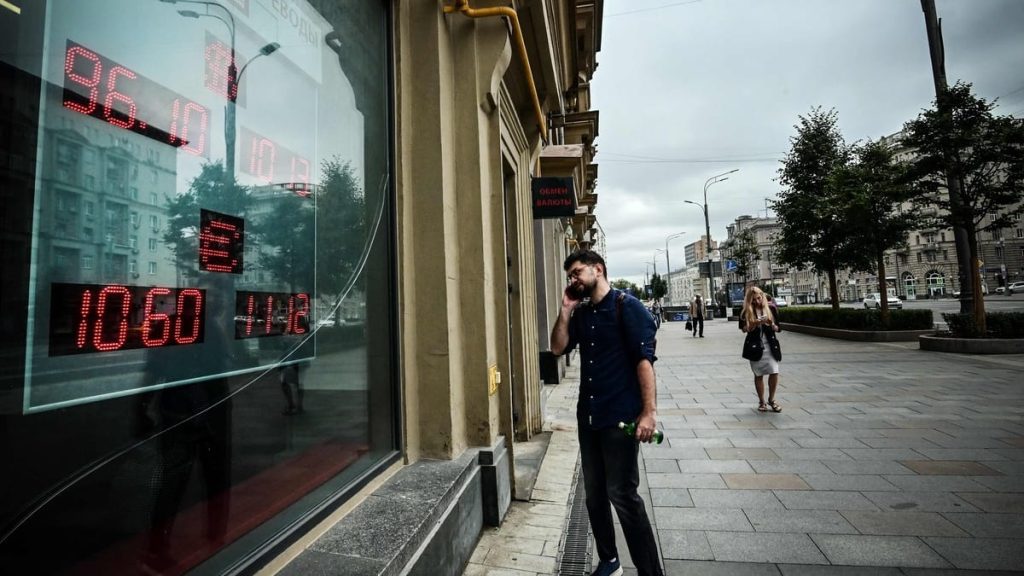
Russia on Tuesday launched a trial phase of a digital ruble based on blockchain technology, hoping to eventually limit the impact of international sanctions.
• Also Read: Russia: At least 35 killed in gas station fire
• Also Read: Three killed in Russian bombing in Ukraine
• Also Read: Night raids in Ukraine: Moscow says military industrial sites destroyed
“VTB has become the first bank to successfully test transactions with digital rubles in its mobile application,” Russia’s second-largest bank said in a statement.
In total, twelve other banks and 600 individuals were also affected by this “testing phase”, the Russian Central Bank (BCR) explained last week. At this stage, they will be able to make payments at 30 points of sale located in 11 cities across the country.
Eventually, “operations will be free for citizens and with a minimal commission for businesses,” BCR told AFP.
Moscow’s stated goal: to make its economy more airtight and limit the impact of international restrictions.
Unlike cryptocurrencies based on blockchain (a technology that allows direct transactions from a decentralized ledger), the digital ruble is part of the widely regulated CBDCs (“Central Bank Digital Currency”).
It is issued directly by the Russian Central Bank (BCR) and stored in electronic wallets. FSB security services monitor the security of the system.
While officials say they want a digital ruble to make payments more “secure,” some observers argue that introducing such a form of currency would allow the Russian government to further control its citizens.
In the face of sanctions, Russia has sought to rapidly develop alternatives to the SWIFT global payments system — whose banks were largely banned after Ukraine launched its offensive — de-dollarizing its transactions.
As many states begin to reflect on the issue, Russia has become the 21st country in the world to enter the trial phase of launching a digital currency, according to researchers from the Atlantic Council. Only 11 others, including Nigeria, have already introduced a CBDC.
Moscow hopes to extend the digital ruble to all Russians who want it “by 2025-2027,” according to BCR’s response to AFP.





More Stories
Sportswear: Lolle acquires Louis Garneau Sports
REM is still innovative enough to foot the bill
A trip to the restaurant with no regrets for these customers